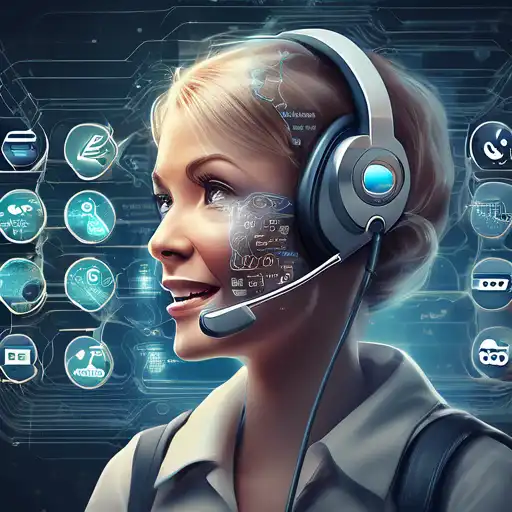Introduction to Natural Language Processing in Customer Service
Natural Language Processing (NLP) is revolutionizing the way businesses interact with their customers. By leveraging AI and machine learning, NLP technologies enable companies to understand, interpret, and respond to customer inquiries in a more efficient and human-like manner. This article explores the transformative impact of NLP on customer service, highlighting key benefits, applications, and future trends.
Key Benefits of NLP in Customer Service
NLP offers numerous advantages for customer service operations, including:
- Improved Response Times: Automated systems powered by NLP can instantly understand and respond to customer queries, significantly reducing wait times.
- 24/7 Availability: Unlike human agents, NLP-driven chatbots and virtual assistants can provide round-the-clock support, ensuring customers receive help whenever they need it.
- Cost Efficiency: By automating routine inquiries, businesses can reduce operational costs and allocate human resources to more complex issues.
- Enhanced Customer Satisfaction: Personalized and accurate responses lead to higher customer satisfaction and loyalty.
Applications of NLP in Customer Service
NLP is being applied in various customer service scenarios, such as:
- Chatbots and Virtual Assistants: These tools use NLP to understand customer requests and provide relevant information or solutions.
- Sentiment Analysis: NLP algorithms analyze customer feedback and social media comments to gauge sentiment and identify areas for improvement.
- Automated Email Responses: NLP can generate personalized email responses based on the content of customer inquiries.
- Voice Recognition Systems: Voice-activated customer service systems use NLP to process and respond to spoken requests.
Future Trends in NLP for Customer Service
The future of NLP in customer service looks promising, with advancements such as:
- More Sophisticated AI Models: Ongoing developments in AI will enable even more accurate and nuanced understanding of human language.
- Integration with Other Technologies: Combining NLP with technologies like augmented reality (AR) could offer innovative ways to assist customers.
- Greater Personalization: Future NLP systems will be able to deliver highly personalized customer experiences by analyzing past interactions and preferences.
Conclusion
Natural Language Processing is transforming customer service by making interactions faster, more efficient, and more personalized. As NLP technologies continue to evolve, businesses that adopt these solutions will gain a competitive edge by offering superior customer support. To stay ahead, companies should explore integrating NLP into their customer service strategies today.
For more insights on how AI is changing the customer service landscape, check out our article on AI in Customer Service.
